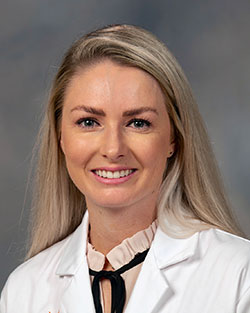Choosing Your Pediatrician | FAQ's
Choosing Your Pediatrician
FAQs
Can I schedule a "To Meet" appointment with you?
For parents who are expecting, you are welcome to schedule in-person meet and greets during the lunch hour or arrange for a zoom or phone call meeting as well.
Will my doctor see me in the hospital?
Yes — if you deliver at Providence Cedars-Sinai Tarzana Medical Center. Once we are informed of your baby's birth, we typically will see your baby within the first 24 hours of delivery, and daily until discharge. We rotate morning rounds, so you may see a few of us during that time. At the time of discharge, we'll advise you as to when to set up your first office appointment. If you deliver at one of the other many hospitals in the Los Angeles area, we often have close colleagues who have privileges at your delivering hospital that will see your newborn. So please ask us for recommendations.
What happens to my baby in the hospital?
Your newborn is just a few minutes old, yet he's already taking his first tests. In-hospital tests are there to help us assess your baby's health and to give us an earlier opportunity to discover potential (sometimes life-threatening) disorders before they adversely affect your baby's health.
-
APGAR
Scored one minute after birth, and again at five minutes after birth, the APGAR assessment checks the general overall condition of your baby. Even though this "test" was named after Virginia Apgar, M.D., APGAR is also an acronym for Appearance (skin color), Pulse (heart rate), Grimace (reflex irritability), Activity (muscle tone and neurologic alertness) and Respiration (breathing). The score given at the one-minute mark helps determine whether or not your baby needs immediate medical assistance, while the score assigned at the five-minute mark shows how your baby is progressing or responding to intervention. Scoring is ranged from 0-2 for each characteristic, with 10 totaling the highest score. It's rare to score a 10!
-
Hearing Screening
California requires this hearing test to be done before your baby is discharged from the hospital. Tests are done by two methods: an ABR (auditory brainstem response evaluation) and/or OAE (otoacoustic emission). Both are fairly accurate and non-invasive (your baby can rest while the tests are being done). Using headphones, we are able to see how a baby responds to sound by measuring brainwave patterns. Our local hospitals wait until a baby is 12-24 hours old and administer the test when a baby is both quiet and alert. Although hearing loss is rare, early diagnosis and intervention leads to better outcomes later in life.
-
Expanded Newborn Screening
Right before hospital discharge, expanded metabolic screening is done in order to screen for many metabolic disorders. Done by obtaining blood with a prick to the heel, these tests include checking for Phenylketonuria (PKU), Congenital Hypothyroidism, Cystic Fibrosis, Maple Syrup Urine Disease, and Sickle Cell Disease.
The American Academy of Pediatrics states that over 1,000 newborns with metabolic disorders found later in life could have been identified through newborn screening. The best time to submit a specimen is when your baby is 3-5 days old (which would happen if you have a C-section), although it's okay to do it when the baby is at least 24 hours old (when feeding has been established — that increases accuracy).
-
Eye Ointment
Since there are a lot of bacteria in the birth canal, our preference is to routinely administer an antibiotic ointment into your newborn's eyes as a precaution to prevent infection such as conjunctivitis or bacterial infection of the eyes. Even with a C-section, there is some potential risk for exposure to vaginal germs. Erythromycin is the ointment of choice and shouldn't cause irritation of your baby's eyes.
-
Vitamin K
By law, Vitamin K has to be offered in the first hour of life. It's given to babies in a single injection to promote blood clotting since a deficiency in Vitamin K could lead to bleeding in the brain, otherwise known as hemorrhagic disease of the newborn (HDNB) or vitamin K deficiency bleeding (VKDB). Newborns at risk are babies who did not receive the preventative injection at birth (especially those born in difficult vaginal deliveries), babies who will be exclusively breastfed, and babies born to mothers who have seizure disorders.
-
Hepatitis B Vaccine
Following AAP guidelines, our recommendation is for your newborn to receive the Hepatitis B vaccine before leaving the hospital.
-
Glucose Test
Some newborns are at-risk for developing low blood sugar levels and need to be checked soon after birth. Most commonly, blood sugar tests are done routinely on very large babies, preterm babies, those born to mothers who had gestational diabetes, newborns that are small for their gestational age, and after stressful deliveries. The most common way to check a baby's blood sugar is with a prick of baby's heel. A blood glucose is checked at two hours of age and again, up to four times a day during the first 1-2 days of life. Why is this test important? Prolonged low blood sugar could lead to a risk of long-term problems with development, learning, or short-term complications like poor feeding or seizures.
If I have trouble breastfeeding, who can help me?
While in the hospital, the nurses are helpful with getting babies to latch on. If you have any trouble, most of the local hospitals have lactation consultants available for nursing support. Once you go home, we have many local lactation specialists to assist you with successful nursing and there is the wonderful option to set up an in-office visit with a lactation consultant on Wednesday and Saturday AMs (by appointment only).
How long will I be in the hospital after delivery?
With a vaginal delivery, you are allowed to stay for up to two days after delivery. If you have a C-section you and your OB will decide when it is appropriate for you to go home — that is typically 3-5 days. We are firm about wanting all mothers and babies to stay in the hospital at least 24 hours — that way both mom and baby can be observed for any postpartum emergencies, and we have adequate time to help prepare you for a good homecoming!
I know my baby is covered under my insurance for the first 30 days… what do I do after that?
The best thing to do is notify your insurance company as soon as possible after your baby's birth. Adding on your baby to your insurance policy prevents a lot of headaches later on, if you forget. On day 31, all insurers require you to pre-qualify your baby for coverage, and that can be a nightmare!
When is our first appointment in the office?
Typically, if you deliver vaginally, your first appointment will be 2-3 days after you return home. If you have a C-section it may be a little longer, as we have had a chance to see your baby 3-4 times during your hospitalization.
What should I expect at our first appointment?
Be prepared to come in 15 minutes EARLY, as there is a little paperwork to fill out (registration form, insurance information, arbitration agreement, and patient contact form). New parents often underestimate the time necessary to make your first outing, so remember to take that into account. During this first appointment your baby will be weighed and measured, and your doctor will examine your baby, and ask you several questions - not only about how your baby is doing, but also about family history, a home safety assessment and some questions about parenting. Please bring in your questions, so we can make this visit very productive. When you leave the office, make your next appointment at check-out.
How do I schedule future appointments?
As you depart from each appointment, your doctor will tell you when your next one should be. Take an extra moment at check-out to secure your next appointment. You will receive a telephone call/message two days before your next appointment to serve as a reminder of the appointment. If you have to cancel, we request you do so at least 24 hours before your appointment. Failure to do so will result in a $75 no-show fee (which is not covered by insurance, but is your responsibility). Payment/co-payments are due at the time of each visit. We accept Visa, MasterCard, American Express, Discover, personal checks and cash.
Will I see my doctor for all appointments?
The best way to schedule with your own doctor is to make those appointments early! Well care slots fill up quickly, so you can schedule at the end of your current visit, over the phone with our staff, or through our secure patient access portal. Illness appointments can be made with your doctor the same day, unless he/she is out of the office. There will always be a doctor here to see your child.
Does your building have parking? Do you validate my parking?
Our building has valet parking, and there are a few spots on the street. Be aware that cars are towed after 3 p.m. if parked on Ventura Boulevard. We do not validate parking, but do our best to stay on time to minimize your parking costs. A few restaurants on the plaza and the pharmacy on the 1st floor do validate parking for 45 minutes (for the cost of a beverage, it's often worth it).
What is the typical schedule of check-ups during my baby's first year?
We will see your child shortly after hospital discharge, at 2 weeks of age, then monthly until 4 months of age. Then visits occur at 6, 9, and 12 months of age.




